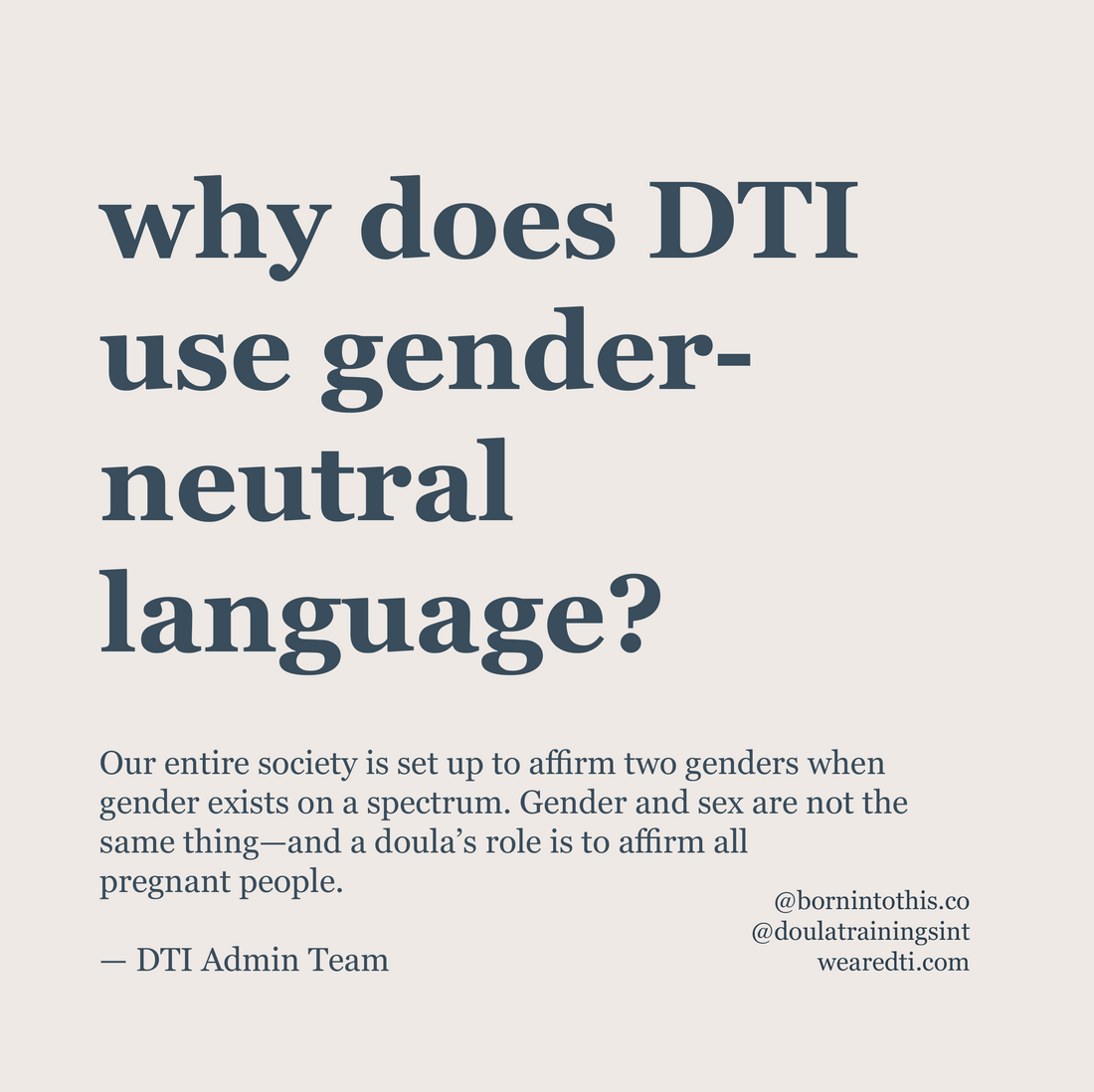What does it look like to become a doula? What are some of the birth world’s most pressing issues? In our new series, Ask A DTI Doula, DTI educators and trained doulas will answer some of our community’s questions.
For the fourth piece in the series, we have a few notes from our admin team on the importance of gender-neutral language—and why we advocate for its use at Doula Trainings International.
What is gender-neutral language?
“Gender-neutral language, or gender-inclusive language, is language that avoids bias towards a particular sex or social gender.” For example, terms like “mother” and “father” are gendered terms, whereas the term “parent” is more gender-neutral.
Why should doulas use gender-neutral language?
Gender and sex are not the same thing—moreover, you do not have to identify as a woman to give birth, have a uterus or be a parent. In today’s birth world landscape, we know that women, trans men and nonbinary folks all may choose to give birth, so gendered terms to describe pregnant people are not always accurate. And throughout your work as a doula in the field, misgendering your client has the potential to harm and disregard their identity.
We teach and understand that a doula’s role is to affirm all pregnant people, and gender-neutral language is a great place to start. Referring to birthing families and pregnant people when speaking to groups includes all and excludes no one. Asking for your client’s pronouns in the beginning stages of getting to know each other is another simple way to better understand their needs. (You can also then determine if clients who enjoy using and benefit from gendered terms can hear those one-on-one.)
How does gender-neutral language show up at DTI?
DTI’s goal is to open the door wider to include as many different people as possible in our community. This is why we use inclusive language throughout our course materials and throughout our trainings. Culturally humble educators and doulas can and should take the time to listen to the experience of all people as unique individuals to learn about their needs regarding learning environments, care providers, birth locations, and more.
Want to become a doula?
You can reach out to DTI at hello@wearedti.com with any questions and you can also browse our training calendar to learn more! Curious about DTI’s programs? Click here to learn more about becoming a doula through the different programs we offer. (We’re currently offering $297 off our trainings from now until November 1—hop to it.)

